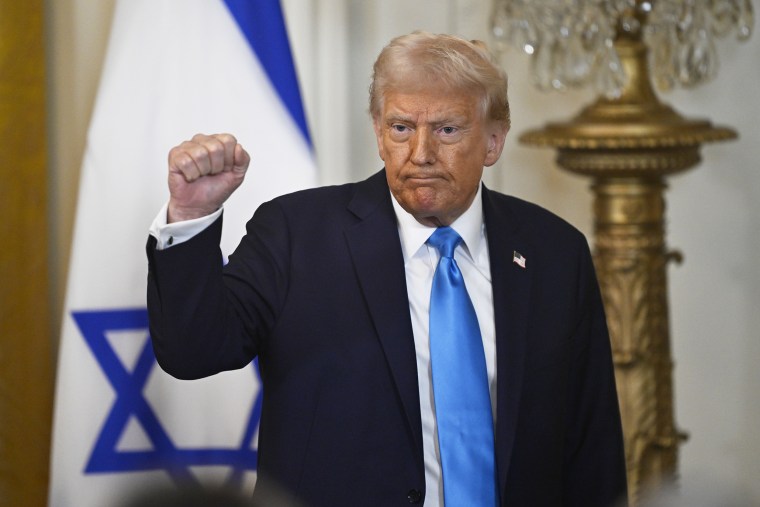U.S. Lawmakers Reject Trump’s Proposal to Take Over Gaza

President Trump’s proposal for the United States to take control of Gaza has faced immediate and strong opposition from lawmakers across party lines. During a press conference in Israel, Senator Richard Blumenthal (D-Conn.) bluntly dismissed the idea, calling it a “hot mess” and a “nonstarter” for most members of Congress. “I’ll be very blunt. My view is that the Trump plan is a non-plan. It’s a hot mess,” Blumenthal said while standing alongside a bipartisan Senate delegation visiting Israel. “The possibility of takeover by the United States is a nonstarter, I think, for most of us. A takeover involving any troops, any taxpayer dollars, is simply a nonstarter. ”Blumenthal, however, expressed optimism about an alternative plan being developed by Arab states. He highlighted his discussions with Jordan’s King Abdullah II and indicated that a regional solution may be on the table. “My talks with King Abdullah convinced me that the plan that the Arab states will offer to President Trump provides a realistic prospect for normalizing relations, self-determination by the Palestinians, regional defense arrangements, and security for Israel,” he said. “If those components are part of a realistic plan, it could be a game changer for the region.

”Trump outlined his controversial proposal earlier this month, suggesting that the U.S. should assume control of the war-torn Gaza Strip and oversee reconstruction. He described a plan to clear the area of unexploded ordnance, demolish damaged buildings, and create an economic development program aimed at providing jobs and housing. “The U.S. will take over the Gaza Strip, and we will do a job—whether we’ll own it and be responsible for dismantling all of the dangerous unexploded bombs and other weapons on the site, level the site, and get rid of the destroyed buildings, level it out,” Trump said. “Create an economic development that will supply unlimited numbers of jobs and housing for the people of the area, do a real job, do something different. ”His remarks sparked immediate backlash, with critics arguing that U.S. involvement in Gaza would be costly, politically dangerous, and potentially disastrous for long-term stability in the region. Many lawmakers fear that direct U.S. intervention would not only provoke strong opposition from Palestinians and regional powers but also entangle the U.S. in another protracted conflict. Senator Lindsey Graham (R-S.C.), a close Trump ally, also weighed in on the issue, confirming that he had spoken with Israeli Prime Minister Benjamin Netanyahu and other officials about the future of Gaza.

According to Graham, Israeli leadership believes that Palestinians should have the option to leave the enclave voluntarily. “Their view is that Palestinians should be given the opportunity to leave if they would like,” Graham said. “I support that. I will work with Israel to find countries that would host Palestinians if they choose to leave. ”However, Graham emphasized that no forced relocation was being proposed. “We’re not talking about a forced exodus by Israel or anyone else,” he said. Despite his close ties to Trump, Graham echoed the broader skepticism in the Senate regarding U.S. involvement in Gaza. “One thing I will say, there’s very little appetite that I’ve seen in the United States Senate for America to take over Gaza in any way, shape, or form,” he stated. “I think that would be a difficult sell in South Carolina. ”The backlash from both Democratic and Republican lawmakers highlights the significant obstacles facing Trump’s proposal. The idea of direct U.S. involvement in Gaza has raised concerns about military commitments, financial costs, and diplomatic consequences.

Critics argue that such an approach could alienate key allies, deepen regional instability, and place American forces at risk. Arab states have expressed interest in presenting an alternative plan to Trump, one that prioritizes Palestinian self-determination and a broader regional security framework. While details of the plan remain unclear, its development suggests that regional leaders are wary of unilateral U.S. action and are working toward a multilateral solution. Blumenthal’s remarks reflect the prevailing sentiment among lawmakers who see Trump’s plan as unrealistic and fraught with risk. Instead, the focus among many in Congress appears to be on supporting diplomatic efforts led by regional actors rather than direct American intervention. As debates over Gaza’s future continue, the strong bipartisan rejection of Trump’s proposal signals that his administration may need to shift course. With resistance mounting in Washington and concerns growing in the Middle East, Trump’s vision for Gaza appears unlikely to gain traction among policymakers.
The coming weeks will determine whether alternative diplomatic efforts can gain momentum and whether the administration will seek a different approach to addressing the ongoing crisis.


